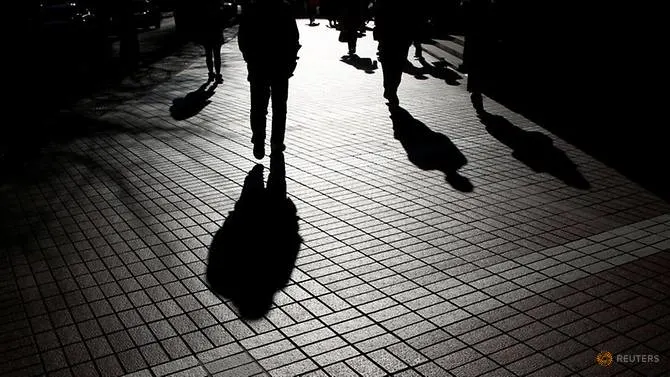Japan's worst postwar financial downturn could force new leader to boost stimulus
08 September, 2020

Japan's economy sank deeper into its worst postwar contraction in the next quarter as COVID-19 jolted businesses more than primarily thought, underscoring the intimidating task the new prime minister faces in averting a steeper recession.
Other data put that challenge in perspective, with household spending and wages falling in July as the broadening impact of the pandemic kept consumption frail even after lockdown measures were lifted in-may.
The world's third-largest economy shrank an annualised 28.1 per cent in April to June, greater than a preliminary reading of a 27.8 % contraction, revised gross domestic product data showed on Tuesday (Sep 8), suffering its worst postwar contraction.
The data will put the brand new prime minister, to be elected in a ruling party leadership race on Sep 14, under great pressure to take bolder monetary support measures.
Chief Cabinet Secretary Yoshihide Suga, the frontrunner to be next premier, has signalled his readiness to improve spending if he were to lead the united states.
"The risk ahead is that the result of measures taken up to now, such as for example payouts to households, will peter out," said Koichi Fujishiro, an economist at Dai-ichi Life Research Institute.
"If COVID-19 weighs heavily on wages, the new administration could take additional steps to greatly help households."
The government has so far unveiled a US$2 trillion package of stimulus measures, increasing an improved easing programme from the Bank of Japan (BOJ).
Japan recently saw a renewed rise in infections but has been spared the sort of big casualties observed in Western countries. Total infections stood at 72,321 by Monday, with 1,380 deaths versus a global tally of over 27 million cases and more than 888,000 deaths.
The primary culprit behind Tuesday's downwards GDP revision was a 4.7 % drop in capital expenditure, much bigger when compared to a preliminary 1.5 per cent fall, suggesting the pandemic was hitting broader sectors of the economy.
"We can not expect capital expenditure to strengthen much ahead. Companies won't boost spending when the outlook is indeed uncertain," said Hiroshi Miyazaki, senior economist at Mitsubishi UFJ Morgan Stanley Securities.
Japan's economy has displayed some signs of life after suffering three straight quarters of contraction, with factory output rising in July at the most effective pace on record because of rebounding demand for automobiles.
Yet separate data on Tuesday suggested any recovery is going to be modest, as household spending fell a bigger-than-expected 7.6 per cent in July year-on-year, while real wages declined for the fifth straight month, pointing to more pressure on consumer spending.
BROAD IMPACT
Medical crisis has ravaged a wide array of sectors, with firms such as for example automaker Honda Motor forecasting a 68 % decrease in gross annual operating profit and cosmetics firm Shiseido expecting a net loss for the entire year as the pandemic hit cosmetics sales.
The new batch of data will be among factors the BOJ will scrutinise at its rate review in a few days, when it's widely expected to keep monetary settings unchanged.
Analysts polled by Reuters in August said they expect the economy to shrink 5.6 per cent in the current fiscal year to next March, and grow just 3.3 % in the next year, weighed against the BOJ's forecast released in July for a 4.7 % contraction and 3.3 per cent growth in the same periods.
The central bank eased monetary policy twice this year including by setting up a lending facility to pump money to cash-strapped small firms, complementing two big government spending packages.
Many analysts expect the BOJ to carry off on ramping up stimulus for the present time as steps to spur demand could get persons moving more freely into shops and risk spreading the virus.
The global and domestic business climate has many Japan observers predicting an extended and bumpy road to returning the economy to pre-coronavirus levels.
"It will probably take a very long time for the economy to normalise and go back to levels prior to the pandemic," said Yoshiki Shinke, chief economist at Dai-ichi Life Research Institute.
Source:
TAG(s):
